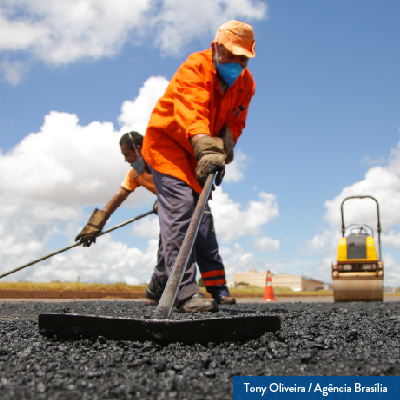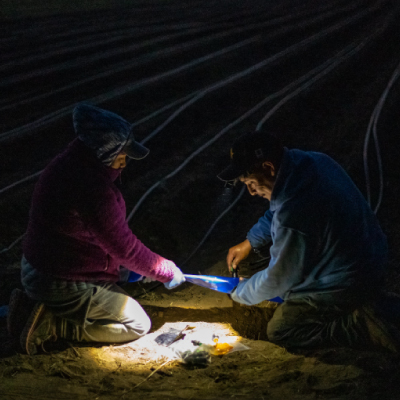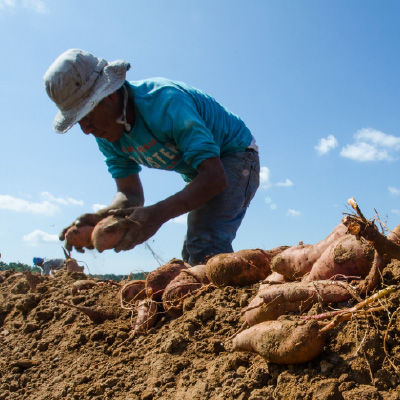- Who We Are
- Clinician Employment
- Publications
- Witness to Witness (W2W)
- El Premio Kugel & Zuroweste a la Justicia en la Salud
- Your Voice Matters: Photovoice Project
Thu, 07/30/2015 | by Claire Hutkins Seda

This week, medical residents at the University of Minnesota’s Global Health Pathway track began an innovative new month-long rotation, entitled, Global is Local: Mobile Migrant Farmworker Health Rotation. Jonathan Kirsch, MD, Assistant Professor and Medicine Hospitalist in General Medicine, designed the course to introduce medical residents to the health needs of immigrants in the residents’ own communities by bringing students out to migrant farmworker camps served by mobile clinics. As the program grows, Dr. Kirsch hopes to eventually include students of the schools of dentistry and pharmacy. The multidisciplinary program may be the only migrant health program offered to residents in the country.
This week, medical residents on the University of Minnesota’s Global Health Pathway track began an innovative new month-long rotation, entitled, Global is Local: Mobile Migrant Farmworker Health Rotation. Jonathan Kirsch, MD, Assistant Professor and Medicine Hospitalist in General Medicine, designed the course to introduce medical residents to the health needs of immigrants in the residents’ own communities by bringing students out to migrant farmworker camps served by mobile clinics. As the program grows, Dr. Kirsch hopes to eventually include students of the schools of dentistry and pharmacy.
 Residents who choose the Global Health Pathway track typically travel abroad to complete a one- to two-month rotation program, “but a lot of people are also interested in working with global populations here,” said Dr. Kirsch. “This is a global population that is in our own backyard, and is, in my opinion, the most marginalized worker population in the country.”
Residents who choose the Global Health Pathway track typically travel abroad to complete a one- to two-month rotation program, “but a lot of people are also interested in working with global populations here,” said Dr. Kirsch. “This is a global population that is in our own backyard, and is, in my opinion, the most marginalized worker population in the country.”
“MCN is excited to partner with this program as part of its Workers and Health program,” said Amy Liebman, MPA, MA, Director of Environmental and Occupational Health at MCN. “Migrants and immigrants work in some of the most hazardous industries in the country. Clinician education in occupational medicine is limited at best. We are hoping this program will better equip clinicians who serve migrants.”
MCN will offer input on the course curriculum, link this program with others clinician training programs, and share the final curriculum with others. “Our goal is to help clinicians and clinicians-in-training improve the recognition, management, and prevention of work-related conditions,” Liebman added. As part of the first week of training, Liebman will be onsite to present Worker Health and the Frontline Clinician - Linking Policy to Practice to Improve Quality of Care. Also this week, MCN’s Chief Medical Officer, Ed Zuroweste, MD, will present MCN’s history, Health Network enrollment, and several Health Network case studies, via occupational video conferencing. Next week, MCN is supporting an onsite training by Matt Keifer, MD, MPH, Director at the National Farm Medicine Center on pesticides and other agricultural medicine topics.
Following several days of training, the residents will head out to the field. “There will be nine clinical days where we go out into three different communities with Community Health Services, Inc. (CHSI), the main health care provider that does mobile health,” in southern Minnesota, Kirsch explained. (CHSI is also an MCN partner in the Workers and Health program as a Center of Excellence in Environmental and Occupational Health.) A nurse with the mobile unit of CHSI, formally known as Migrant Health Services, Inc., will have already conducted assessments in the communities. The residents will be providing primary care and preventative services to farmworkers from sugar beet, pea, and corn fields, from the local canneries, and from poultry and dairy farms.
Dr. Kirsch’s experiences with migrant farmworkers extends back to his work at Finger Lakes Community Health, where he worked with the mobile health unit. “It was a great opportunity to go out into rural areas, to underserved communities, and be able to provide care in the camp,” including preventative care and health screenings, he noted. “We found numerous people with conditions that needed to be treated,” like diabetes, hypertension, and behavior problems, that otherwise would have gone unaddressed, due to lack of health care access, reluctance to be treated, or inability to miss work, he said. He continued his work as a migrant clinician at the North Carolina Farmworker Health program, before joining the staff at the University of Minnesota. “Because I have had the experience working with farmworkers, we decided that doing a rotation for medical residents and trying to collaborate with the local organizations doing this work,” would benefit the community as well as provide essential training for future migrant clinicians, he said. Dr. Kirsch engaged local nonprofits like Centro Campesino to ensure that the residents are providing the services that the community actually needs. The program he has built integrates faculty from other departments, including from the College of Pharmacy and the Chicano-Latino Studies department. He hopes that in future years the residents will be able to provide dental care in the camps as well.
Another interesting aspect of the program is a collaboration with undergraduate students to do “asset-mapping, to better understand the assets and the needs of the community,” explained Dr. Kirsch. “We think there are around 30,000 [migrant farmworkers] that come to Minnesota every year -- but we really have no idea,” due to a lack of data. “We feel strongly that we want to have it be a community-driven, community-engaged process,” he explained. By better understanding what resources are out there and what resources are still needed, the program can assure that it builds on the strengths of the current resources, and avoids duplicating efforts.
Dr. Kirsch is very hopeful that the curriculum he is developing will be useful to other programs across the country that may also wish to develop similar rotations. Visit the University of Minnesota’s Global Health Pathways site here. Dr. Kirsch’s mobile clinic partner, Community Health Services, Inc., is located here.
Like what you see? Amplify our collective voice with a contribution. Connect with us on Facebook or Twitter.
Return to the mail blog page -- or sign up for blog updates -- here.







